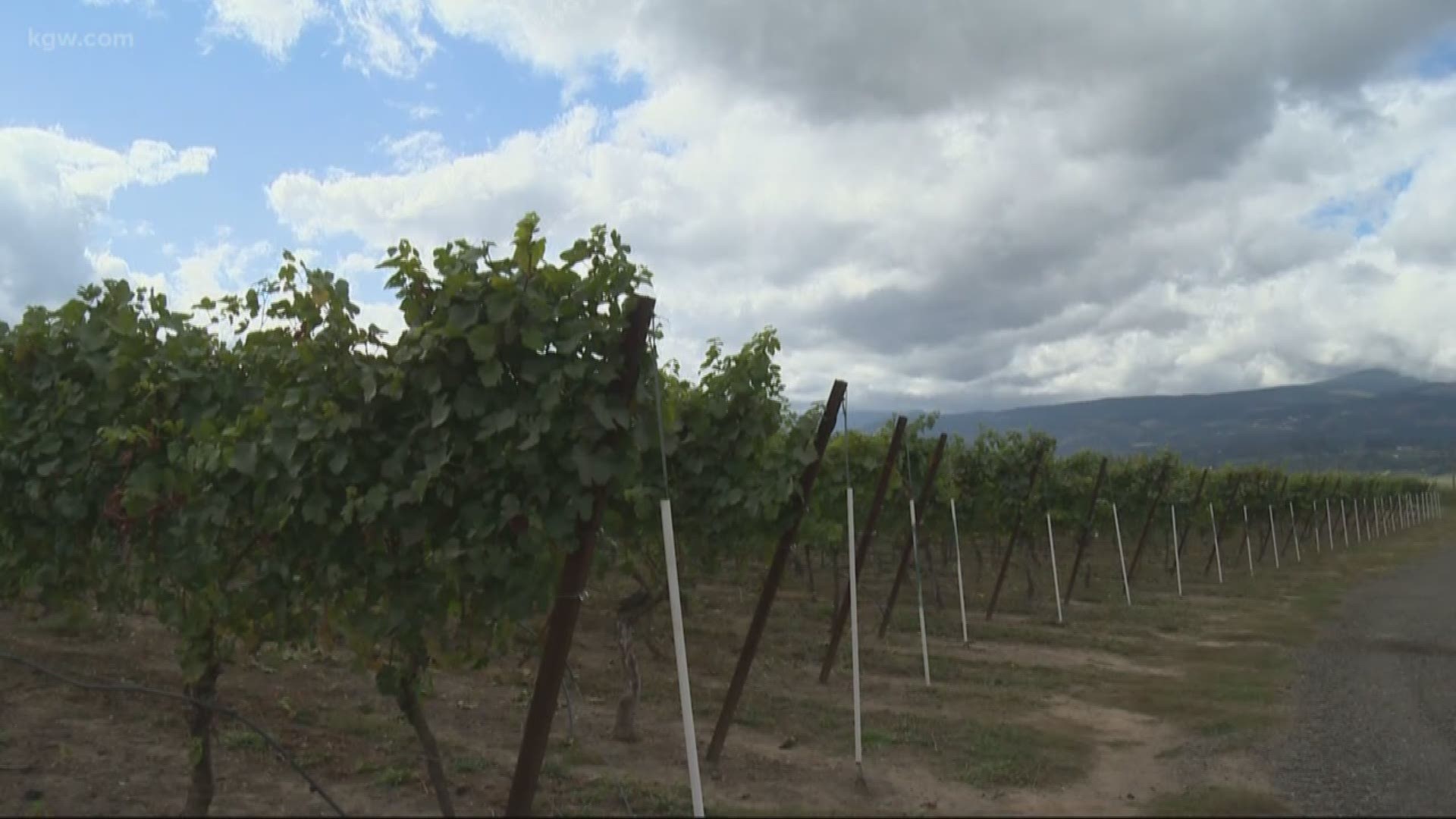An Oregon winery is stepping up to buy grapes from Rogue Valley growers whose contracts were abruptly canceled by a California winery — the same winery already enmeshed in a labeling fight with Oregon.
Oregon politicians are also getting involved, planning to visit with affected growers on Thursday.
"This is perhaps the most devastating issue facing the Oregon wine industry in our history," Christine Collier Clair, winery director at Willamette Valley Vineyards, said via email.
Clair said Willamette Valley Vineyards was buying some of the grapes made homeless when Napa Valley-based Copper Cane LLC canceled contracts with at least 15 growers.
Copper Cane said it canceled the contracts — reportedly for some 2,000 tons of grapes worth perhaps $4 million — because it feared the grapes were infected with "smoke taint" from summer wildfires. Last year Rogue Valley growers harvested 12,000 tons of grapes.
“We are paying the full market price," Clair said. "We are also encouraging other Oregon wineries to help if they can and will help match growers to wineries.”
Willamette Valley Vineyards founder Jim Bernau has been outspoken in the label brouhaha, charging that Copper Cane is misleadingly implying that some of its wines come from highly regarded growing areas in Oregon. Clair fears the contract cancellations are payback.
But Copper Cane owner Joe Wagner told the Oregonian “initial (test) results and the sensory analysis came back positive for smoke taint. We have now sent rejection notices to all our growers in the Rogue Valley.”
Smoke taint is a somewhat murky issue; winemakers know it can happen after grapes are exposed to wildfire smoke, but how it plays out can vary depending on the nature of the smoke, the timing of the exposure, the grape variety in question and the winemaking processes employed.
Clair shared lab results from two affected growers that she said showed “the crops appear well below the thresholds for producing premium wines.”
Willamette Valley Vineyards was encouraging other Oregon wineries to consider buying the available Southern Oregon grapes, which could be enough to make around 120,000 12-bottle cases of wine. The winery and King Estate also offered to pay to harvest the grapes and transport them to winemaking facilities where they could be made into wine for the bulk market in joint ventures between wineries and growers.
Clair was also inviting media to a Thursday morning session with growers at a Rogue Valley vineyard led by Oregon state Rep. David Gomberg. The Central Coast lawmaker has been a critic of Copper Cane on the labeling issue, asking the state Department of Justice to investigate the matter.
The Portland Business Journal is a KGW News partner.

